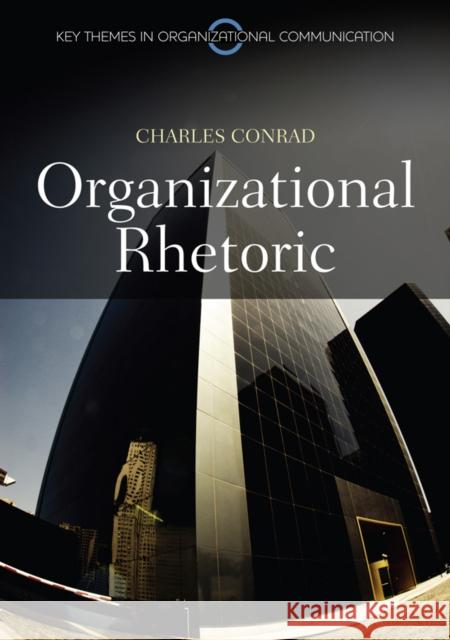Organizational Rhetoric » książka
Organizational Rhetoric
ISBN-13: 9780745647173 / Angielski / Miękka / 2011 / 208 str.
Organizational Rhetoric
ISBN-13: 9780745647173 / Angielski / Miękka / 2011 / 208 str.
(netto: 78,03 VAT: 5%)
Najniższa cena z 30 dni: 81,43
ok. 30 dni roboczych.
Darmowa dostawa!
Why do citizens demand that their political systems be democratic, but tolerate autocratic rule within their organizations? Why do governments spend trillions to aid corporations in spite of intense opposition by the vast majority of their citizens? Why do most people accept cultural myths about economies and organizations in spite of contradictory evidence, while others resist them? This book argues that the answers lie in the power of organizational rhetoricNthe strategic use of symbols to manipulate popular opinion and political power.
Organizational Rhetoric examines the mythical systems that underlie corporate influence and explains how corporate rhetors use these mythologies to create and sustain preferential public policies and favorable images. Each chapter also examines resistance to these mythologies, and concludes with an illustrative case study.
This accessible and engaging book asks readers to think carefully and critically about domination and resistance. Moreover, it engages them in an analysis of how their own practices contribute to underlying structures and ideologies, and how their actions could contribute to change.
Why do citizens demand that their political systems be democratic, but tolerate autocratic rule within their organizations? Why do governments spend trillions to aid corporations in spite of intense opposition by the vast majority of their citizens? Why do most people accept cultural myths about economies and organizations in spite of contradictory evidence, while others resist them? This book argues that the answers lie in the power of organizational rhetoricÑthe strategic use of symbols to manipulate popular opinion and political power.
Organizational Rhetoric examines the mythical systems that underlie corporate influence and explains how corporate rhetors use these mythologies to create and sustain preferential public policies and favorable images. Each chapter also examines resistance to these mythologies, and concludes with an illustrative case study.
This accessible and engaging book asks readers to think carefully and critically about domination and resistance. Moreover, it engages them in an analysis of how their own practices contribute to underlying structures and ideologies, and how their actions could contribute to change.











